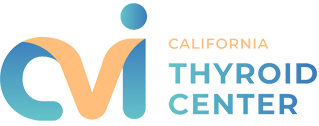Radioactive Iodine Therapy
The thyroid, a butterfly-shaped gland that is located in the front of the neck, produces hormones that are crucial in the regulation of the body’s functions. However, to make them, the gland requires iodine. Fortunately, the thyroid is the only organ that concentrates iodine and holds on to it. This is the basis for radioactive iodine (RAI) therapy.
RAI therapy uses a radioactive form of iodine (I-131) because it can be taken up and processed by the thyroid, the same way as natural iodine. However, once it reaches its destination, it causes permanent destruction to the thyroid tissue by emitting radiation, while sparing other tissues in the body.
Radioactive Iodine Therapy: Indications
RAI therapy has been approved for therapeutic use on both benign and malignant thyroid conditions. For instance, it is indicated for the management of overactive thyroid tissue (that causes hyperthyroidism) and some types of thyroid cancer. Also, this therapy can be used to decrease the size of glands that are not hyperfunctioning but are causing signs or symptoms due to their size. Concrete indications for RAI therapy are:1
- Grave’s disease
- Toxic multinodular goiter
- Toxic adenoma
- Non-toxic multinodular goiter
- Thyroid cancer
Toxic nodular goiter
The goal of treatment in multinodular goiter and toxic adenoma is the rapid and long-lasting resolution of hyperthyroidism. Along with surgery, RAI therapy is one of the definitive treatments for this condition. It can decrease the size of the nodules, thereby reducing the signs and symptoms of hyperthyroidism.2 A single dose has been shown to reduce goiter size by up to 40% and it usually succeeds in 85-100% of patients with toxic nodular goiter.2
In these conditions, possible indications for RAI therapy include advanced age, small goiter size, significant coexistent diseases, and prior surgery or scarring of the anterior neck.3
Thyroid cancer
Large doses of RAI may also be useful to treat certain types of thyroid cancer. It is usually helpful for patients with papillary and follicular carcinomas. However, it is of no use in cases of medullary thyroid carcinoma and anaplastic carcinoma because these tumors don’t take up radioactive iodine.4
RAI therapy is typically used after surgery (thyroidectomy), to destroy any remaining thyroid tissue that might have been left after the procedure.5 This use has shown reduced recurrence rates and prolonged survival in patients with papillary cancer who are at high risk for recurrent disease.5 Finally, the radiation emitted by the iodine can be detected from outside the patient to gain information about possible residual thyroid tissue or disease that has spread (metastatic disease).5
Non-Toxic Multinodular Goiter
RAI therapy is an effective therapeutic alternative in patients with large multinodular goiters (enlarged thyroid glands) that are not overactive. Following therapy, the size reduction of the goiter is roughly 40% after 1 year, and 50–60% after 2 years.6 Also, RAI therapy considerably improves compressive symptoms (i.e. compression of the upper airway) in most cases.6
Radioactive Iodine Therapy: Risks
The side effects of RAI treatment will vary depending on age, associated medical conditions, and the dose of radioactive iodine administered. Possible acute side effects of therapy include neck discomfort, nausea, vomiting, loss of taste, salivary gland pain and swelling (sialoadenitis), dry mouth, and sore throat.7 Also, temporary infertility in men who receive RAI therapy for thyroid cancer can occur.7
Hypothyroidism or underactive thyroid is an expected side effect of RAI therapy.7 Rarely, the opposite can also occur: some patients may have excess thyroid hormone levels that can cause a life-threatening condition known as thyrotoxicosis.7
Long-term side effects can include dental caries, pulmonary fibrosis, recurrent sialoadenitis, and damage to the tear ducts. Importantly, there is also a risk of developing secondary malignancies (i.e. thyroid, breast, stomach, bladder, or blood cancer).7 Some studies suggest that radiation-induced cancer risks following RAI therapy for hyperthyroidism are small and that these may be higher after high-dosed therapy.10 However, further research is needed on this subject.
Radioactive Iodine Therapy: Recovery
In most cases, thyroid hormone levels will return to normal (or below normal) after a single dose of treatment. This may take around 2-5 months.11 Thyroid function tests are needed every 4-6 weeks for six months until the hormone levels stabilize.11 If the patient still has hyperthyroidism after six months, the physician may reconsider RAI retreatment.7 Either way, patients that receive RAI therapy will require regular lifelong follow-up.7
Importantly, patients will be radioactive after treatment for several days. Thus, certain safety precautions to protect others from radiation should be taken. Their duration will depend on the dose received. Some include:12
- Increasing fluid intake
- Urinating seated and flushing the toilet 2-3 times after use.
- Keeping 6 feet of distance from children and pregnant women.
- Limiting time in public places (work, public transportation, and airplanes) and maintaining distance from others.
- Sleeping in a separate bed or 6 feet away from another adult or child.
- Avoiding sharing utensils with others.
Request an Appointment
Please note that although we strive to protect and secure our online communications, and use the security measures detailed in our Privacy Policy to protect your information, no data transmitted over the Internet can be guaranteed to be completely secure and no security measures are perfect or impenetrable. If you would like to transmit sensitive information to us, please contact us, without including the sensitive information, to arrange a more secure means of communication. By submitting this form you consent to receive text messages from CVI at the number provided. Msg & data rates may apply. Msg frequency varies. Unsubscribe at any time by replying STOP.
Radioactive Iodine Therapy: How is it Performed?
RAI therapy is almost always done on an outpatient basis by an experienced radiologists. The radioiodine is usually administered in a single dose, as a capsule, or in a drinking solution.7 In order to determine this dose, the doctor will probably order a RAI uptake scan before the treatment. This test measures the amount of radioiodine that accumulates in the gland. Several days after therapy, a follow-up scan will be necessary to determine where the dose was taken up in the body.7
During treatment, certain foods or supplements containing iodine can hinder the uptake of RAI by thyroid cells. Thus, all patients should be on an iodine-free diet for a week before the procedure. This period might be longer for patients receiving therapy for thyroid cancer.7 Furthermore, some studies suggest increased treatment failure if antithyroid drugs are given before or with RAI therapy. Thus, these should be stopped 3-7 days prior to treatment. In patients with a severe hyperfunctioning disease or cardiac problems, antithyroid drugs may be initiated before therapy.7
Importantly, RAI therapy should not be used during pregnancy. Thus, pregnancy should be ruled out before the procedure. It is recommended that women delay pregnancy for at least 6 months after therapy.8 Similarly, RAI can collect in breast tissue and breast milk. Thus, breastfeeding must be stopped at least 6 weeks before treatment and should not be restarted after RAI therapy.9
Patients who require RAI therapy after surgery for thyroid cancer will need to either stop thyroid hormone replacement therapy or receive two injections of Thyrogen® prior to the procedure.5 The goal is to increase the levels of thyroid-stimulating hormone (TSH) in the body, which will stimulate the remaining thyroid tissue (including cancerous tissue) to absorb more radioactive iodine.5 This is necessary because cancer cells don’t take up RAI as easily as healthy thyroid cells do.
Thyroid Hormone Replacement after Radioactive Iodine
Hypothyroidism or underactive thyroid is an expected side effect of RAI therapy because normal functional tissue is also destroyed in the process. The management of this condition may vary.
Generally, a low-dose thyroid hormone replacement (manmade thyroid hormone) is started before hypothyroidism ensues.11 The most commonly prescribed is pure synthetic thyroxine (T4). This treatment can be adjusted gradually every 6-8 weeks until a stable dosage is achieved.11 Similarly, if the patient is taking antithyroid medication, it is usually stopped once hormone levels start falling below the normal range.11
We are Here to Help
Request an appointment to meet with our RFA specialist who will review your imaging, labs and history to determine if you are a good candidate for the procedure, and the outcomes you can expect. Each person is an individual and should discuss the potential risks and benefits of thyroid RFA with our doctor to decide if this is the best option.
Appointments are available via an online video telehealth platform or in person in Los Angeles, California. Why should you choose us? Read here.
1.) Mumtaz, M., Lin, L. S., Hui, K. C., & Mohd Khir, A. S. (2009, January). Radioiodine I-131 for the therapy of Graves’ disease. The Malaysian journal of medical sciences: MJMS. Retrieved October 1, 2021, from https://www.ncbi.nlm.nih.gov/pmc/articles/PMC3336179/.
2.) Philip R Orlander, M. D. (2021, June 14). Toxic nodular goiter. https://emedicine.medscape.com/article/120497-overview#a4.
3.) Ross, D. S., Burch, H. B., Cooper, D. S., Greenlee, M. C., Laurberg, P., Maia, A. L., Rivkees, S. A., Samuels, M., Sosa, J. A., Stan, M. N., & Walter, M. A. (2016). 2016 American Thyroid Association guidelines for diagnosis and management of hyperthyroidism and other causes of thyrotoxicosis. Thyroid, 26(10), 1343–1421. https://doi.org/10.1089/thy.2016.0229
4.) Treatment of Thyroid Cancer, by Type and Stage. American Cancer Society. Atlanta, Ga https://www.cancer.org/cancer/thyroid-cancer/treating/by-stage.html#written_by
5.) Carballo, M., & Quiros, R. M. (2012). To treat or not to treat: The role of adjuvant radioiodine therapy in thyroid cancer patients. Journal of Oncology, 2012, 1–11. https://doi.org/10.1155/2012/707156
6.) Bonnema, S. J., Nielsen, V. E., & Hegedüs, L. (2009). Radioiodine therapy in non-toxic multinodular goitre. the possibility of effect-amplification with recombinant human TSH (rhtsh). Acta Oncologica, 45(8), 1051–1058. https://doi.org/10.1080/02841860600617084
7.) Padda, I. S. (2021, June 2). Radioactive Iodine Therapy. StatPearls [Internet]. Retrieved October 1, 2021, from https://www.ncbi.nlm.nih.gov/books/NBK557741/.
8.) Kim, H. O., Lee, K., Lee, S. M., & Seo, G. H. (2020). Association between pregnancy outcomes and radioactive iodine treatment after thyroidectomy among women with thyroid cancer. JAMA Internal Medicine, 180(1), 54–61. https://doi.org/10.1001/jamainternmed.2019.4644
9.) S. National Library of Medicine. (2021, June 21). Sodium iodide I 131. Drugs and Lactation Database (LactMed) [Internet]. Retrieved October 1, 2021, from https://www.ncbi.nlm.nih.gov/books/NBK501563/.
10.) Shim, S. R., Kitahara, C. M., Cha, E. S., Kim, S.-J., Bang, Y. J., & Lee, W. J. (2021). Cancer risk after radioactive iodine treatment for hyperthyroidism. JAMA Network Open, 4(9). https://doi.org/10.1001/jamanetworkopen.2021.25072
11.) Lee, S. L. (2020, December 5). What monitoring is needed after radioactive iodine therapy for hyperthyroidism? Retrieved October 1, 2021, from https://www.medscape.com/answers/121865-25290/what-monitoring-is-needed-after-radioactive-iodine-therapy-for-hyperthyroidism
12.) Radioactive Iodine. American Thyroid Association. Retrieved October 1, 2021, from https://www.thyroid.org/radioactive-iodine/.
The above information explains what is involved and the possible risks. It is not meant to be a substitute for informed discussion between you and your doctor but can act as a starting point for such a discussion.








